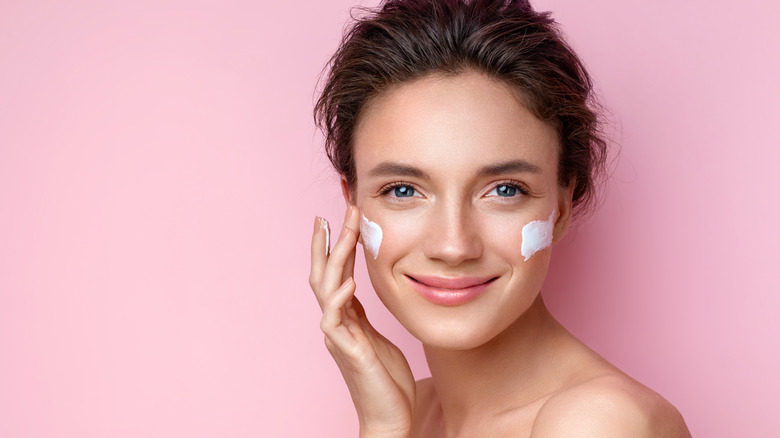How To Protect Your Skin Barrier With Your Skin Care Routine
As per Healthline, your skin is made up of different layers, with each layer having its own purpose for protecting your body. The outer layer of skin — known as the stratum corneum — is the toughest layer and is made up of skin cells called corneocytes that are kept together by lipids. This forms your skin barrier.
This wall of skin is what keeps us alive and protects our bodies from damage — without this protective layer, all kinds of harmful toxins and pathogens could easily enter the body, causing damage. Your skin barrier is a vital aspect of maintaining good health, but can only do that if it functions how it's meant to, which is where the importance of taking care of it comes in.
Éminence explains that when your skin barrier is healthy and strong, it can not only protect you from external dangers, but it also helps to lock in moisture. Whereas, when the skin barrier is damaged, allergens and irritants can make their way through it and the skin's water levels can decrease, which can leave skin looking dry and dehydrated.
Glamour explains that, when it comes to most skincare problems, they tend to be linked to the skin barrier in one way or another, and that by nurturing your skin barrier you can help to alleviate common skin issues.
How can you protect your skin barrier?
Dr. Murad, a board-certified dermatologist, explains to Glamour that to protect your skin barrier you should, "Try products with ceramides and hyaluronic acid. They absorb water and surround each skin cell with lipids, making the cell more able to hang onto water. As well as lipids, you need good antioxidants and anti-inflammatories like vitamins A, C and E."
Healthline suggests that in order to protect your skin barrier, it's best to simplify your skin care routine and stop using a complex array of products. Instead, it's best to get advice from a dermatologist about what products you should be using to nurture and protect your skin barrier.
Healthline also suggests that it's important to pay attention to pH, as your skin's acid mantle remains at around a pH of 5.7, whereas the pH of some beauty products can range from 3.7 to 8.2. It's best to use products that are close to your skin's natural pH, to help prevent further skin barrier damage.
If your skin barrier is damaged, try using an oil to help replenish it. A 2018 study found that using plant oils on skin may help with skin barrier repair, as many oils contain natural antibacterial and anti-inflammatory properties.

